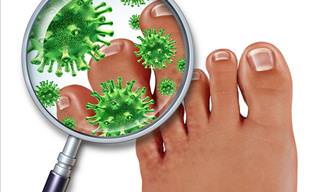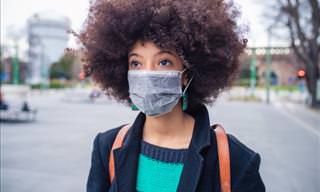It’s spring, which means nice weather and a happier mood to some, and the horrific time of constant sneezing, runny noses, and itchy eyes for others. In short, it’s seasonal allergy time, and this unfortunate spring, everything is even more complicated, and virtually no one is fortunate to enjoy the pleasant weather, all because of the Coronavirus Pandemic. One of the new challenges many people will face or are already facing this spring is the need to tell apart seasonal allergy symptoms and those of COVID-19 - a potentially lifesaving distinction. Here is how you can figure out whether the symptoms you may be experiencing are more likely to be an allergy or the Novel Coronavirus.
Coronavirus Symptoms vs Seasonal Allergies

Since both conditions affect the respiratory system and cause inflammation in the body, symptoms of the two conditions may mimic one another, especially in people already suffering from chronic allergies or asthma, who tend to cough and experience shortness of breath when exposed to the allergens they're sensitive to.
Still, there are ways to tell the two conditions apart with some certainty, as there are specific symptoms that are different in the two illnesses in question, or such that are more common in one of the conditions, but not the other. As you can tell by taking a look at the visual comparison of common allergy symptoms with common signs of COVID-19 below, one of the main distinctions between the two conditions is the presence of a fever.
Related Article: Covid-19 or the Flu: How to Tell the Difference
The wide majority of COVID-19 patients who exhibit symptoms of the disease report having a high fever for days on end and this fever can be accompanied by a sore throat, fatigue, and muscle pains in the beginning stages of a SARS-CoV-2 infection. After 5 days of having a fever, patients may also start feeling a shortness of breath, wheezing, and other signs of viral pneumonia. Respiratory allergies, on the other hand, are very rarely associated with a fever, so the presence of such can point to an infection rather than an allergic reaction.

An indication that you're experiencing a seasonal allergy, and not a Novel Coronavirus infection, may actually hide in your nose. Sneezing isn't a known symptom of COVID-19, but it is a primary sign of an allergy. So, if you're experiencing sneezing, a runny or stuffy nose, you're likely suffering from allergies or the flu, and not a SARS-CoV-2 infection. That being said, if you know that you do have COVID-19, you can spread the virus to others through sneezing, so make sure to wear a mask and sneeze into your elbow to prevent the spread of the virus.
Red eyes are also very uncommon among Coronavirus patients, with WebMD reporting that only 1-3% of COVID-19 patients experiencing this symptom. This means that a cough accompanied by red or itchy eyes and sneezing is more likely to be an allergy than the Coronavirus. While all of these symptoms may be indicative of either one of the two conditions, the only reliable way of knowing if you have COVID-19 is testing yourself for the virus.
Precautions For Allergy Sufferers
Please keep in mind that COVID-19 and an allergy can also occur simultaneously, and also that the Coronavirus can exhibit no symptoms. If you find that it's more difficult for you to deal with your seasonal allergy symptoms this spring, consider taking a Coronavirus test, especially if you have a fever, severe fatigue, muscle & joint pain, or shortness of breath. In addition, if you're having allergy symptoms, make sure to wear a mask when outside, since you're more likely to sneeze and unknowingly spread the virus since most of us could be carriers of the deadly virus.
Needless to say, it's also crucial for everyone to abide by social distancing practices and proper hand washing and disinfecting habits, but especially if you're unwell.
If you're an allergy sufferer and you find it difficult to get your allergy medication during this time, call your doctor to fill in a prescription over the phone or discuss over-the-counter options with your pharmacist.
 Go to BabaMail
Go to BabaMail



























